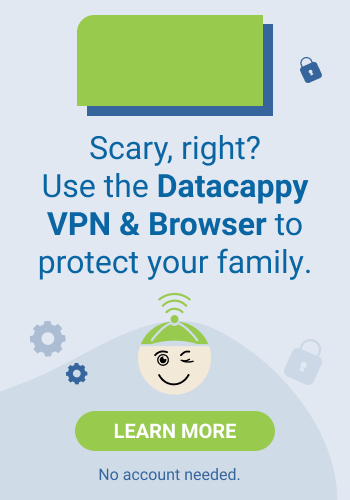
In the digital age, personal and behavioral data have become the new currency. As consumers navigate the internet, use mobile apps, and interact with various services, they generate vast amounts of data. This data, which can include everything from shopping habits to location information, is highly sought after by corporations for its immense value in marketing and product development. As parents when we see our kids being targeted by large corporations we realize immediately that protecting this data is crucial for several reasons.
Firstly, privacy is a fundamental right. (Or should be.) Consumers have the right to control their personal information and decide how and when it should be shared. Keeping personal and behavioral data private ensures that this right is respected. When corporations have unrestricted access to this data, they can create detailed profiles of individuals, often without their consent or knowledge. This can lead to a loss of anonymity and potentially, unwanted surveillance.
Secondly, data breaches are a significant risk. The more data corporations collect, the bigger the target they become for cyberattacks. When personal and behavioral data fall into the wrong hands, it can lead to identity theft, financial fraud, and other forms of cybercrime. By limiting the amount of data available to corporations, consumers can reduce their vulnerability to these risks.
Thirdly, data privacy is linked to consumer trust. Studies have shown that consumers are increasingly concerned about their online privacy. A McKinsey survey revealed that 87% of respondents would not do business with a company if they had concerns about its security practices, and 71% would stop doing business with a company if it gave away sensitive data without permission. This indicates that companies that prioritize data privacy can gain a competitive advantage by building trust with their customers.
Moreover, regulations such as the General Data Protection Regulation (GDPR) in Europe and the California Consumer Privacy Act (CCPA) in the US reflect the growing demand for data privacy. These regulations empower consumers to take control of their data and hold corporations accountable for their data practices. By complying with these regulations, companies not only avoid hefty fines but also demonstrate their commitment to protecting consumer interests.
In conclusion, keeping personal and behavioral data out of the hands of corporations aligns with the interests of consumers by safeguarding privacy, reducing the risk of data breaches, and enhancing consumer trust. It helps keep our kids safe and corporations at a safe distance. As the digital landscape evolves, it is imperative for consumers to remain vigilant and for corporations to commit to responsible data practices.







